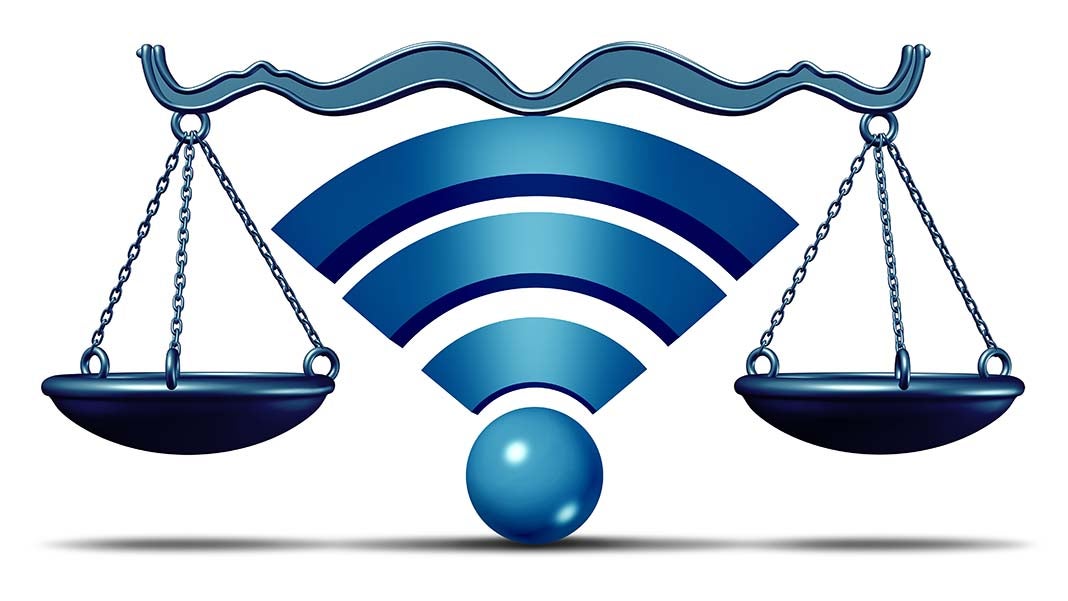The Death of Net Neutrality: What Does It Mean for Small Businesses?
By: Andrew Heikkila

Net neutrality is dead.
The Obama administration’s 2015 net neutrality rules have been disputed for the past year or two but have finally been repealed by the Federal Communications Commission (FCC). These rules used to require internet service providers (ISP) offer equal access to all content on the web and meant that they weren’t able to charge for an internet “fast lane” or to “throttle” connections to certain sites. Unfortunately, that is no longer the case.
“Imagine if the electric company could choose to provide better electrical service to companies that paid them a hefty fee and spotty electricity to those that don’t,” writes Rhonda Abrams for USA Today. “It would stifle competition from smaller companies and innovative entrepreneurs. That’s what the repeal of net neutrality is going to allow.”
Think about how much of your business—of anybody’s business—exists within the cloud. For larger companies, “paying for prioritization,” for faster-loading sites, may not be a big problem because they have the capital to afford it. However, for smaller businesses, this could be mean the beginning of a hefty set of challenges.
Paying Extra for What You Already Had
In Abrams’ USA Today article, Evan Greer of open-Internet advocacy group Fight for the Future equates the end net neutrality to “a tax on small businesses,” which “allows the largest, most powerful companies to squash their competition by cutting competitive deals with big ISPs, who will become the gatekeepers of the free market, picking and choosing which businesses succeed and which ones fail.”
He reminds that this doesn’t just impact large corporate organizations.
“In 2018 every business needs to be online,” he says.
This could even decay the culture of remote work that has arisen recently. These arrangements tend to save businesses on capital costs and increase worker satisfaction but may not prove viable if employees are unable to afford an internet connection that supports business-appropriate speeds and service.
Keegan Green, writing for Forbes, mentions that this overall “throttling” of speeds and the creation of a fast-lane/slow-lane situation creates a culture of prioritization that he compares to strong-arming:
This idea seems incredibly similar to an old mob tactic where business owners have to pay the mob in order to operate a store in “mob territory.” As a small business owner, especially one who sells products or services through the internet, you rely heavily on your website to bring in business. Imagine being told by a company like Comcast that in order to allow your users to continue to browse your site at high speeds, you will need to pay a hefty fee for data prioritization. You would almost assuredly not be able to make those payments. On the other hand, your multi-million dollar competitors, whether they be Walmart or another big box store, have almost infinite funds to make sure their website speeds are consistent. This, in effect, could put a small shop out of business because of how important internet traffic is to its bottom line.
Of course, proponents of the death of net neutrality claim that all of this is great for competition, but they seem to be greatly outnumbered.
Cybersecurity Dangers of Repealing Net Neutrality
Cybersecurity is a huge issue in the modern age, with DDoS, IoT, and ransomware attacks all on the rise. The cybersecurity dangers of repealing net neutrality are documented via connections blog TelecomLead. The cybersecurity dangers that they are most concerned about are:
- Exposure and lack of privacy: The tools that we currently use to secure ourselves on the internet may become ineffective or fiscally unobtainable as ISPs take control.
- Encryption is impossible: ISPs have the ability to alter all traffic that passes through their equipment, meaning that they’ll have to decrypt and re-encrypt data as it comes and goes. The ability of ISPs to decrypt traffic will greatly affect the confidentiality of your information.
- The return of popups: ISPs can now place additional ads that programs such as AdBlock Plus are unable to hide. These are perfect grounds for phishing, where hackers use ads to manipulate people to send their login information.
- Spyware creates vectors: To record internet browsing, TelecomLead indicates that ISPs will need to install spyware on your devices, which could be subverted by hackers to steal information.
The state of security on the internet is already abysmal, to the point that some are calling it “America’s New Exorbitant Panic”. Handing over the reigns to the same people that brought you the DMV and the Department of Veterans Affairs seems to be a step in the wrong direction.
The Death of Net Neutrality = Death of Competitive SMBs?
It’s hard to say exactly what the death of net neutrality means for small businesses, but you’ll be hard pressed to find anybody that thinks this move is good for small businesses. Competition will likely suffer (not flourish) as businesses will now be burdened with increased capital expenses.
“The end of net neutrality will definitely affect not only how much you pay for Internet access, but whether you’ll be able to sell your goods on the Internet and which programs you’ll be able to have access to (and how much you’ll pay) to help you run your business,” says Abrams.
Jessica Rosenworcel, writing for the Harvard Business Review, mentions FarmLogs—a mobile app that compiles big data sets to forecast profits, track expenses, and schedule operations—as an example of how a neutral an open internet allows businesses to prosper. Nearly one-third of all U.S. farms have signed up to use FarmLogs to manage their operations, and it’s making them more profitable and efficient.
“The success of this company is as much about agricultural process as about how the internet age has made entrepreneurship more accessible to all,” she writes. Rosenworcel worries that the loss of net neutrality will harken a devolution toward the state of entrepreneurship two decades ago, “when starting a technology business often meant prohibitively heavy upfront investments, physical equipment, and limited access to broadband networks. It’s hard to imagine a time when it was easier for anyone to start a business.”
Unfortunately, there’s not much that a small business owner can do currently. Advocacy groups and others are going to keep fighting, and fortunately, 22 states are suing the FCC over the recent repeal.
As we continue to fight, the most important thing we can do is use our voices and never give up on the idea of a free and open internet.
3169 Views












